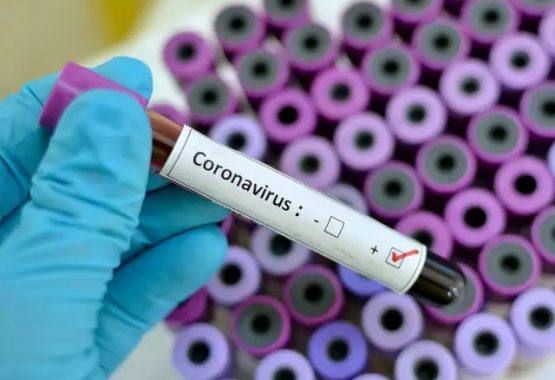Travel to Uganda is subject to entry restrictions
- If you are travelling to Uganda, you will need to provide a negative COVID-19 test certificate, issued no more than 72 hours before boarding the aircraft or crossing land borders. Foreign nationals without a valid negative test certificate will be denied entry. Infants aged three and under are exempt when accompanying parents arrive with a negative test certificate.
- Arriving passengers will be subject to temperature checks and will be screened for infectious diseases by the Port Health authorities.
Entry requirements
The information on this page covers the most common types of travel and reflects the UK government’s understanding of the rules currently in place. Unless otherwise stated, this information is for travellers using a full ‘British Citizen’ passport.
The authorities in the country or territory you’re travelling to are responsible for setting and enforcing the rules for entry. If you’re unclear about any aspect of the entry requirements, or you need further reassurance, you’ll need to contact the embassy, high commission or consulate of the country or territory you’re travelling to.
You should also consider checking with your transport provider or travel company to make sure your passport and other travel documents meet their requirements.
Entry rules in response to coronavirus
Entry to Uganda
Entebbe International Airport re-opened on 1 October 2020. Land borders have also re-opened. New COVID-19 standard operating procedures (SOPs) are in place for arriving and departing passengers.
On arrival at Entebbe International Airport and at land border crossings, travellers will need to provide a negative COVID-19 test certificate issued no more than 72 hours before boarding the aircraft. Airlines have been directed not to allow passengers without a negative test certificate to travel. Foreign national passengers who arrive without a valid negative test certificate will be denied entry. Infants aged three and under are exempt as long as the accompanying parents have a negative test certificate.
You should not use the NHS testing service to get a test in order to facilitate your travel to another country. You should arrange to take a private test.
Testing/Screening on arrival
Arriving passengers will be subject to temperature checks and will be screened for infectious diseases by the Port Health authorities. If a passengers shows signs or symptoms of any infectious disease they will taken by ambulance to a local isolation centre to undergo a COVID-19 test at their own cost. Test results will be returned within 24 to 48 hours; passengers will be expected to remain at the isolation centre until the test results are returned.
If a foreign national tests positive for COVID-19 and wishes to be repatriated for treatment outside of Uganda, they will be expected to cover the costs themselves.
Testing / screening on departure
Departing passengers are required to present a negative COVID-19 PCR test certificate, issued no more than 120 hours before travel. The 120 hours begins on the day the sample is collected for testing.
COVID-19 tests taken for the purpose of travel outside of Uganda have to be paid for, even if the test is taken at a government testing centre. From 23 November 2020, all COVID-19 test certificates issued in Uganda must indicate the intended purpose of the test. Only test certificates which state travel as the intended purpose will be valid for departure from Uganda. Test certificates which state contact or alert will not be valid for travel.
There are a number of public and private COVID-19 test centres in Uganda. For further information, please see the government COVID-19 Response website.
Departing passengers will be required to wear a face mask inside the terminal and will be subject to temperature checks. Social distancing will also be in place and only passengers with valid tickets and airport officials will be allowed into the terminal building. Passengers are advised to arrive at the airport at least 4 hours before departure.
Passengers travelling on flights departing during curfew hours (9pm to 6am) will be allowed to travel to the airport upon presentation of a valid ticket.
Regular entry requirements
Visas
You’ll need a visa to enter Uganda. You can apply for a visa at the Ugandan High Commission in London or apply online for an ‘e-visa’. You can find full details of how to apply on the website of the Ugandan High Commission in London. You should give yourself sufficient time to apply for a visa and make sure when applying that the start date and validity covers the period you wish to travel.
You can also apply for an East African Tourist Visa. This is valid for 90 days and allows multiple entry into Kenya, Rwanda and Uganda. You can apply for this visa on the ‘e-visa’ website.
Immigration offices in Uganda have now been re-opened. The Ministry of Internal Affairs have advised that fines accrued for overstaying visa or permits from 18 March to 9 June 2020 are waived. Discretion to waive fines outside of this period lies with the Commissioner of Immigration. Cases will be considered on a case-by-case basis. Foreign nationals can submit an enquiry via the Directorate’s web based form.
For more information about entry requirements, visit the Ugandan Directorate of Citizenship and Immigration Control website.
Passport validity
Your passport should be valid for a minimum period of 6 months from the date of entry into Uganda.
UK Emergency Travel Documents
UK Emergency Travel Documents (ETDs) are accepted for entry, airside transit and exit from Uganda. ETDs must be valid for 6 months.
Yellow fever certificate requirements
Check whether you need a yellow fever certificate by visiting the National Travel Health Network and Centre’s TravelHealthPro website.






